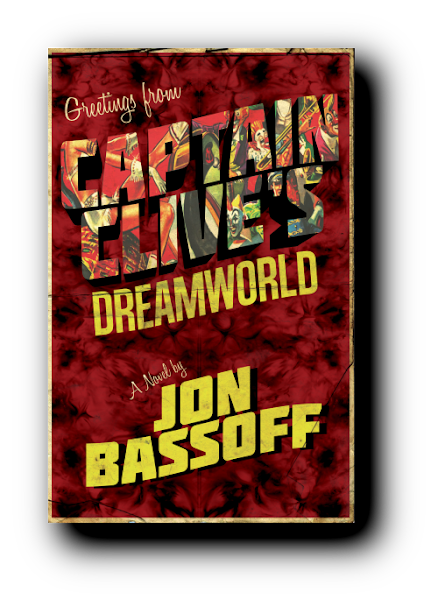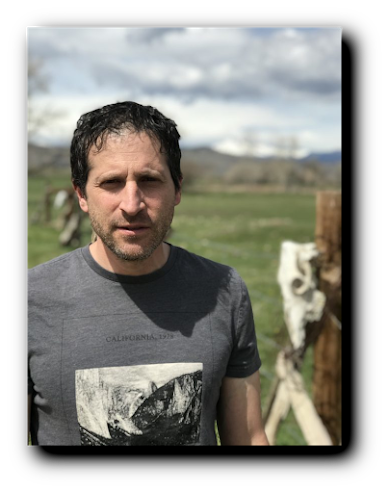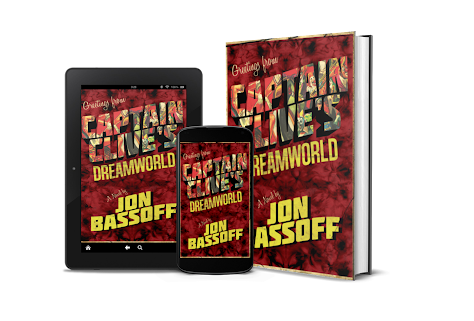Sweet Water
by Cara Reinard
January 1-31, 2021 Tour
Synopsis:
What did her son do in the woods last night? Does a mother really want to know?
It’s what Sarah Ellsworth dreamed of. Marriage to her childhood sweetheart, Martin. Living in a historic mansion in Pennsylvania’s most exclusive borough. And Finn, a teenage son with so much promise. Until…A call for help in the middle of the night leads Sarah and Martin to the woods, where they find Finn, injured, dazed, and weeping near his girlfriend’s dead body. Convinced he’s innocent, Sarah and Martin agree to protect their son at any cost and not report the crime.
But there are things Sarah finds hard to reconcile: a cover-up by Martin’s family that’s so unnervingly cold-blooded. Finn’s lies to the authorities are too comfortable, too proficient, not to arouse her suspicions. Even the secrets of the old house she lives in seem to be connected to the incident. As each troubling event unfolds, Sarah must decide how far she’ll go to save her perfect life.
Sweet Water Reviews:
“An unsparing account of ‘rich people problems’ that goes on forever, like all the best nightmares." —Kirkus Reviews
Book Details:
Genre: Domestic Thriller, Crime Fiction
Published by: Thomas & Mercer
Publication Date: January 1st 2021
Number of Pages: 364
ISBN: 1542024935 (ISBN13: 978-1542024938)
Purchase Links: Amazon | Barnes & Noble | Goodreads
Read an excerpt:
I reach for my phone inside my purse slung around my neck. It’s dangling behind my back because I had nowhere else to put it while examining the body.
“Sarah, is she breathing?” Martin asks. I turn my head to find him, but it’s too dark.
I stumble, disoriented under the canopy of trees. We’re somewhere off Fern Hollow Road, the closest turnoff to Finn’s pinned iPhone location.
“I d-don’t know,” I sputter, still shocked we found her and not Finn when we parked the car and hiked the rest of the way into Sewickley Heights Park.
“Check her—now. I need to find Finn.” Martin’s voice fades into the forest, and all I want to do is follow him, but I just spoke to my son on the phone. His speech was slurred, and his girlfriend is . . .
“Oh God.” I open my mouth and let out a strangled breath, so sick that I sway to the side.
My eyes water as I kneel beside Yazmin Veltri, a girl I’ve known for only the briefest period. The wetness soaks through the holes in my jeans, settling into my bare kneecaps, ice on bone.
“Yazmin?” I shine my phone’s light in her direction, but I’m stopped by the certain hint of marijuana.
Shit. All these years working with at-risk young women, and I couldn’t see that Finn was dating one.
“Please,” I beg the starlit sky peeking through the trees. “Let her be breathing.”
I sniffle and inhale the truth through the rotting leaves. Something terrible has happened here, and I’m too late. The autumn mist snakes in through my nose, out through my mouth, emitting tiny white puffs of air.
The forest ground is slippery, a feathered blanket beneath my knees, slathering the tops of my shoes.
I hear more hurried footsteps. Martin sounds like a mouse lost in a maze. Has he found Finn? I need to go to him, but my husband told me to stay here.
The branches scratch the tops of my feet as I move closer to her, the fallen leaves collecting between my knees. Yazmin could still be alive. A bitter taste rises in my mouth as I bite my tongue, and I’m close enough to touch her now.
My arm trembles as I place two fingers on the cold flesh of her neck. Not only cold—wet. I can’t see what I’m touching, but I can feel her absence. Right below her jawline, in the space beside her trachea where I know a steady drumbeat should exist, there’s nothing.
No pulse. My heartbeat quickens and plummets. Oh God.
My blood is rushing. Pounding. I’m sweating despite the near-thirty-degree temperature. I dip my head closer to Yazmin’s chest, careful not to tangle my hair with hers. I’ve checked on my kids enough times in the middle of the night to know this girl’s not breathing. I shut my eyes and listen anyway.
Sure enough, the steady rise and fall of Yazmin’s chest is absent along with her pulse.
“She’s dead. We have to call the police,” I announce, loud enough for Martin to hear, but not nearly as loud as the screaming in my head.
Call somebody! Help!
I hear Martin crunch closer, and I turn my back on the girl.
I scoot up on my legs and use my hands to push myself into a crouching position. My breath is heavy, and everything on my body—my hands, my knees—rattles with fear. I hear a cry in the distance.
My son’s cry. And then Martin’s rustling footsteps. Beside me again.
“Where is he?” I ask.
“He’s okay, but . . .” Martin nods to the right. “He’s injured. We need to get him out of here, Sarah.”
“Okay,” I say, but I close my eyes because my head is a ringing bell of stress even though this wooded area is one of the things that drew me to this town. The park is near the country club where we’re members, where Martin’s family have been members for years, and things like this just don’t happen here.
“Let’s go, Sarah!” Martin urges.
My eyes snap open, and I hold up my phone. “Wait. I’m calling 911. For her.”
“No.” Martin swats my hand away with the flick of his strong knuckles. The blood on my palms makes everything slick, and my cell phone goes flying across the forest like a bar of soap in the shower. I slip sideways into a bramble of branches and land on my left hip, staring at my husband’s garish face in the moonlight. He looks unfamiliar, that expression one reserved for when he loses business at work, a rare occurrence. Martin is an innovator, his causes noble. Sometimes I don’t approve of how he does things, but I usually approve of why.
“Damn it.” Martin scrambles to find my phone. Right now, I don’t approve at all.
“Why did you do that?” I ask, but I’m more surprised that he’s hit me than I am by the fact that he doesn’t agree with my decision to call the police.
“It will get reported tomorrow. We need to leave with Finn. Now.”
“What? That makes no sense.”
Martin retrieves my phone, and I’m trying to get his attention, but he’s looking right past me at the gas pipeline in the distance, a clear-cut, inclined path free of foliage about a thousand yards long in the mountainous terrain. Martin and I messed around with sleds one winter on a protected slope of land just like it, and I think maybe Finn and Yazmin planned their own adventure out here tonight and something went terribly wrong.
“Martin.” I try to get up, but my foot slips on a mossy rock.
He grabs my arm. Then drops it. “Watch yourself,” he says, but he doesn’t help me rise. He’s too busy texting.
It’s then that I hear water rushing nearby. The river rocks are indigenous to this area, like everything else woodsy and serene in Sewickley.
Sewickley, the Shawnee word for sweet water, derived from the tribe’s belief that the borough’s shores were a little sweeter on that stretch of the Ohio River, the maple trees that grow at its shores only part of the saccharine story.
“Who’re you texting?” I’m crying and my hands are still wet, but I can’t wipe them. There’s blood all over my palms, and I can’t remember how it got there; head wounds bleed the worst.
“Hold on!” Martin is standing with his back to me now, holding his phone in the air like he’s trying to decide what to do with it, a six-foot silhouette of trepidation. He scratches his dark hair and rubs his cell phone on his sweater-vest, but he doesn’t use it to call anyone, only texts.
“I’m getting legal advice from my father,” Martin says.
His father?
I picture William Sr. texting back from the comfort of one of his high-back chairs inside his home, one of the few estates that make up Sewickley Heights like a richly woven patchwork quilt—the expensive kind sewn together with colonials surrounded by alabaster columns and mile-long driveways.
“Martin?”
William’s house is a fat-thatched Tudor hiding behind manicured bushes, a peek of white here, a slip of brown there, but there’s no hiding from this.
“Of course you have to report it!” I look again—at her—and the blood is already congealing around her open head wound, her neck bent at an awkward angle, a matchstick snapped in half. The rushing water streams just behind her.
Martin’s tugging on my coat. “Get up, Sarah. We have to go.”
“We can’t leave her.” Yazmin’s long black hair is covering the expression on her face, although the one I imagine is stuck there will haunt me more than the one I cannot see. She rests on her back, and it would be an odd way to fall, backward instead of forward, her hands crossed over her chest as if she were thwarting an attack. It reminds me of a tae kwon do block from when Finn used to take classes. We’d enrolled him when he was a child because he was painfully shy, whereas Spencer, his older brother, was frequently mentioned by his teachers as boisterous or exuberant, adjectives used in private schools to describe disruptive overachievers. I might expect Spencer to get into trouble with a girl like this, but not my poor Finny.
I turn toward Martin. He’s speaking, but I’ve stopped listening.
His eyes are pleading. “She’s dead. We can’t help her. Finn was the last person with her.”
“But—”
“He’s on something, Sarah. Drugs.” Martin shakes his head furiously. “This looks bad.”
I can hear what he’s saying, but I’ve retreated into my own body, and I don’t even know who we are right now.
We used to be Martin and Sarah Ellsworth of Blackburn Road.
We were the couple sitting at a corner table at a fancy restaurant, splitting a bottle of wine. Laughing at each other’s jokes.
“We have to do something for her.” My voice is swallowed by the humming sounds of the forest and the flapping of the leaves on the trees, the river. She’s already dead, but we need to make sure she’s at least taken to the hospital so her parents can identify her. Bile rises in my mouth. My heart is beating so fast, drowning out everything else, but I faintly hear Finn’s voice again nearby.
“I’m sorry.” Martin extends his arm to help me up, but I waggle my finger in the air at him, pointing to my hands, reminding my brainy husband that I’m bloodied and pulling me up isn’t a good idea. I must’ve made the mistake of touching Yazmin in the wrong place.
“Right.” He draws his palms back.
My legs won’t work. I gaze up, silently praying. The large enveloping trees of Sewickley Heights tower above us like old wealthy gatekeepers winking in the night.
“I need your help. I can’t move him on my own, Sarah,” Martin reveals.
I close my eyes, wishing it all away. It’s all a bad dream.
“Can we just make an anonymous call from a pay phone or something? For her parents’ sake, at least?”
“You can’t. They’ll try to interview Finn, see the drug use, and assume the worst. He’ll go to jail.” His voice is thick with desperation. “Sarah, this will ruin Finn’s life. This isn’t his fault!” Martin kicks a stone with his worn loafer, a product from one of the posh boutiques that line downtown Sewickley, a mishmash of overpriced things people don’t really need displayed in windowed storefronts on cobblestone streets. There’s a place to reupholster old furniture with patterns better left to die with their original owners, a claw-foot-tub specialist, an herbal spa with enough fresh fruit remedies to double as a bakery, the imported-leather-shoe store.
I bought Martin the shoes he has on now, and he’s worn them down to the soles. He’s practical, a computer engineer and CEO of a robotics start-up in the Strip District. He does things that make sense.
But right now, he’s not making any.
“Maybe she slipped.” My voice is shallow like the night air sneaking away from my lips, but the idea of an accident fills my heart with hope. “We’ll leave an anonymous tip.” If I had my phone, I’d call myself.
I’d explain this is exactly how we found her. She wasn’t even near our son when we discovered her body.
Unless . . . we’ve messed with the scene of the crime so much that we’ve hurt Finn more than helped him. I look down at my bloody hands and cringe. As far as we know, Finn is the last one who saw Yazmin alive. This could be very bad for him. “Shit.”
Martin grabs me by the arm. “We have to go, Sarah. Get up.” I can’t see much of Martin’s face but the stringy blue vein in his forehead that only comes out when he’s upset.
It’s been only minutes, but we need to move—faster.
“We need to go to him,” I say.
“Yes.” Martin nods.
I’m in shock. That’s what’s wrong with me. I blindly follow Martin, adrenaline fueling my limbs. Finn is off the beaten path, and I feel as though I’ve already failed him for taking so long. He’s huddled over a pile of leaves, his knees tucked into his chest like he used to do when he was a little kid. He looks so small right now.
So young.
A little boy who fell off his scooter and skinned his knee. I wish this problem were as easy to fix.
I wipe my hands on my jeans and throw my arms around him.
“I’m here. Mom’s here.” Finn’s crying and I don’t know how to make it better for him. He obviously didn’t mean for the girl to get hurt, but this was no accident either. He’s made a terrible mistake, gotten himself into a horrible predicament. So Finn did what we always told him to do if he was ever in trouble—he called us.
***
Excerpt from Sweet Water by Cara Reinard. Copyright 2021 by Cara Reinard. Reproduced with permission from Cara Reinard. All rights reserved.
Author Bio:
Cara Reinard is an author of women’s fiction and domestic. She currently lives north of Pittsburgh with her husband, two children, and Bernese mountain dog.
For more information, visit:
www.carareinard.com
Goodreads
BookBub - @CaraReinard
Twitter - @carareinard
Instagram - @carareinard
Facebook - Cara Reinard, Author
Tour Participants:
Visit these other great hosts on this tour for more great reviews, interviews, guest posts, and giveaways!
Enter To Win!!:
This is a rafflecopter giveaway hosted by Partners in Crime Virtual Book Tours for Cara Reinard. There will be two (2) winners each receiving one (1) Amazon.com Gift Card. The giveaway begins on January 1, 2021 and runs through February 2, 2021. Void where prohibited.








